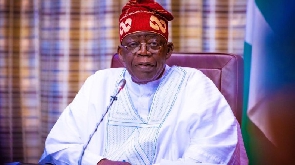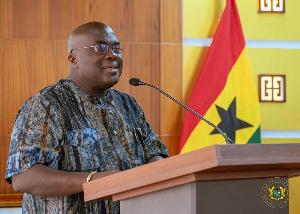The recent discovery of supposed massaged economic figures by the International Monetary Fund (IMF) could lead to sanctions against the Government of Ghana.
A similar incident was said to have occurred in 2000 earning government some punishment in 2001.
Economic analysts have hinted that the supposed massaging of economic figures was deliberate and intended to hide the true state of affairs of the country from the Bretton- Woods and also to cover up the gravity of the rot in Ghana’s economy.
On Wednesday, Sanjeev Gupta, Deputy Director, Fiscal Affairs Department of IMF, said Ghana’s debt profile was over 70 percent of GDP and not 55 percent as claimed by the Bank of Ghana (BoG).
“First of all, the debt-to-GDP ratio in Ghana is 71 percent, not 60 percent so it is much higher than you mentioned.”
Ghana has been caught in huge debt repayment three times than the proceeds from oil revenue, a situation the IMF said was unsustainable.
An IMF delegation, led by Joël Toujas-Bernaté, was in the country to collect information before the actual negotiations during the annual meetings.
Seth Terkper, Minister of Finance, is leading a government delegation to the International Monetary Fund (IMF)/World Bank Annual Meetings.
The team includes Dr Kofi Wampah, Governor of the Bank of Ghana, Chairman of the Finance Committee of Parliament and officials from the Ministry of Finance and the Bank of Ghana.
The delegation attended the Commonwealth Finance Ministers Meeting, which precedes the IMF meetings, as well as other meetings with the Vice President of the World Bank and the G24 Ministerial Meetings.
Ghana experienced financial crisis in late 2000. It recorded a rapidly depreciating currency, sharply rising inflation, burgeoning public debt and a substantial depletion of foreign exchange reserves.
The primary cause was loss of control over public expenditure and government borrowing, especially in the second half of the year before the presidential elections.
The fiscal deficit in cash terms reached 9.7 percent of GDP for the year. Owing to shortfalls in donor disbursements, the deficit was financed almost entirely by domestic borrowing.
The result was a destabilization of the economy: 40 percent growth in broad money, a 50 percent depreciation of the cedi, and a tripling of the inflation rate to over 40 percent at end- 2000. The domestic government debt stock rose to almost 29 percent of GDP, and official reserves fell to only three weeks of imports.
A breakdown in expenditure management and control systems during 2000 also led to a build-up in new domestic arrears in addition to cash expenditure overruns.
The full extent of these arrears remains to be verified, but it’s estimated at 1.4 percent of GDP. Delays in aid inflows further complicated the payment of government obligations and led to the creation of external payment arrears on debt service amounting to US$89 million by end-2000. Ghana’s public and publicly guaranteed external debt stood at US$5.9 billion (about 119 percent of GDP) at end-2000.
The finances of several key parastatals deteriorated along with those of the central government. Failure to adjust petroleum prices fully for rising crude oil costs and a depreciating currency left the Tema Oil Refinery (TOR) with a total short-term debt of 2.5 trillion (9 percent of GDP) at end-2000.
Almost half of this was debt to domestic banks, in particular to Ghana Commercial Bank (GCB), posing a major risk to the solvency of the bank.
Similarly, electricity and water rates were kept artificially low throughout 2000, leaving the Electricity Company of Ghana (ECG), Volta River Authority (VRA), the electricity generator and the Ghana Water Company Limited (GWCL) with sizeable additional debts.
General News of Monday, 13 October 2014
Source: Daily Guide













